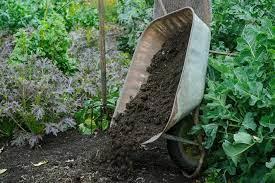
Gardens come in a variety of sizes, styles, and qualities. Similarly, many different types of mulch may be utilized to improve the design of your garden, including organic mulch and non-organic mulch. Ultimately, deciding what sort of mulch to use in your garden, as well as whether to invest in mulch at all, is a job for a professional lawn care business. However, while deciding whether to utilize mulch for landscaping purposes; one should evaluate the benefits that mulch may give. Most people realize that mulching keeps your lawn maintained and your landscape looking clean and crisp, but many are ignorant of the various benefits mulching plants may provide for your garden.
How much Mulch Is Needed?
A layer of 2- 3 inches is enough when using organic mulches. A thinner layer is needed if the mulching material is finer. Inorganic mulch is usually shallower. For instance, a mulch of small stones often only requires being an inch deep.
If you want to apply 2 inches of mulch, you will need 18 cubic feet (1 cubic yard=27 cubic feet) of mulch to cover 100 square feet. Similarly, if you are applying 3 inches of mulch, you will need 27 cubic feet of mulch to cover 100 square feet.
Dry mulches including wood chips, sawdust, dry straw, and peat moss can catch fire. Keep them away from structures to avoid risks and to be on the safe side.
Benefits of Mulching:
You have more benefits of mulching plants in India. Let us see some common benefits of mulching. Limiting light from reaching the soil surface inhibits weed development. Maintain soil moisture by limiting water loss from the soil surface. Reduce soil temperatures, keeping it colder on sunny days and warmer on chilly nights. Reduce soil compaction and erosion while covering and protecting the soil. Mulching plants are protected from harsh winter circumstances such as freezing, thawing, and winds.
Improve the structure of clay soils and the ability of sandy soils to retain moisture. Organic mulch gradually boosts soil fertility and may improve the availability of micro nutrients already present in the soil. Warm the soil in the spring, allowing the gardener to plant days or weeks before the soil is ripe. Keep plants clean and off the ground, especially melons and tomatoes, to prevent plant diseases. When mulch is used around trees instead of grass, the risk of tree trunk damage is reduced. Plant health and development are improved, resulting in fewer weeds and more consistent hydration and soil temperature. Make gardens “groomed up” and appealing, providing garden design with a consistent look. Enjoy the gastronomic experiences of our Liturgical Temples food blog. Discover recipes, culinary techniques, and world cuisines.